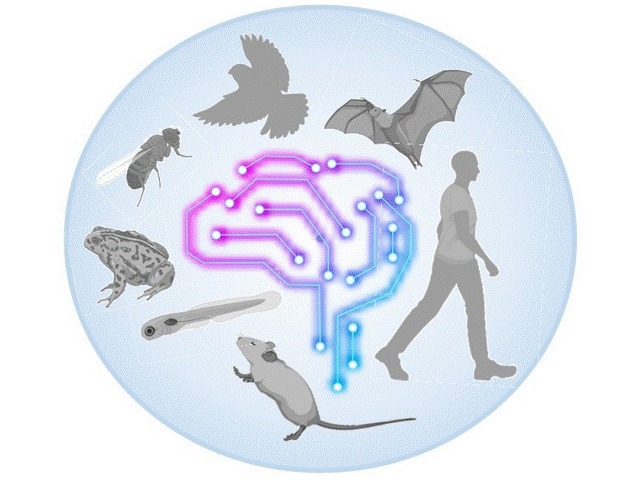This wiki page supports the BRAIN Initiative Brain Behavior Quantification and Synchronization program.
Announcement
The BRAIN Initiative BBQS Program has awarded it's first cohort of grant proposals! More information to follow......
Active NOFOs
Application Due Date:
Wednesday, October 09, 2024/Thursday, October 09, 2025/Friday, October 09, 2026
Application Due Date:
Wednesday, October 09, 2024/Thursday, October 09, 2025/Friday, October 09, 2026
Archived NOFOs

•Developing tools to capture and quantify behavior with high temporal resolution and across multiple dimensions
•Synchronizing with simultaneously recorded brain activity
•Building new conceptual and computational models that capture the complexity of behavior
•Establishing a cross-disciplinary consortium to develop, integrate and disseminate tools, research designs, and ethical frameworks

Background:
The two BRAIN Initiative 2.0 reports ("The BRAIN Initiative 2.0: From Cells to Circuits, Toward Cures" and "The BRAIN Initiative and Neuroethics: Enabling and Enhancing Neuroscience Advances for Society") highlight that a critical step forward is to study “the brain in action,” including efforts to develop “tools to analyze naturalistic (untrained) and trained behaviors” and “to assimilate and link brain recordings with behavior” (p. 34 of "The BRAIN Initiative 2.0: From Cells to Circuits, Toward Cures"). Matching the scientific rigor and precision of measurements of brain activity with equally precise, temporally dense measurements of the functional output of the brain, as expressed in a broad range of behaviors, will accelerate the discovery of brain-behavior relationships in both health and disease. Achieving a comprehensive understanding across these levels of analysis demands the same level of rigor, precision of measurement, and temporal resolution across all levels.
At present, tools for measuring behavior in humans and other species lack the necessary precision and resolution to fully capture behavioral dynamics synchronously with data from the environment with which the organism is interacting and which shapes the behavior under study. To address this gap, the BRAIN Initiative BBQS funding opportunities support 1) development of tools for simultaneous, multimodal measurement of behavior within complex, dynamic physical and/or social environments and align these data with simultaneously-recorded neural activity; and 2) development of novel conceptual and computational models that capture dynamic behavior-environment relationships across multiple timescales and that can integrate correlated neural activity into the model. Potential applicants and others interested are encouraged to visit the NIH BRAIN Initiative website for information and guidance https://www.braininitiative.nih.gov/funding/initiatives.htm.
Workshop on Brain Behavior Quantification and Synchronization: Sensor Technologies to Capture the Complexity of Behavior
Overview
The goals of this workshop include the following:
- An introduction to the types and fabrication of sensors and sensing networks
- Multi-sensor integration for tracking movement; ethical, comparative, and developmental focus
- Integration of sensor information with other data streams, including brain recordings where possible, to capture naturalistic behavior
Data standardization, archiving, security, and privacy - Featured experiments and development of computational models
- Workshop agenda

